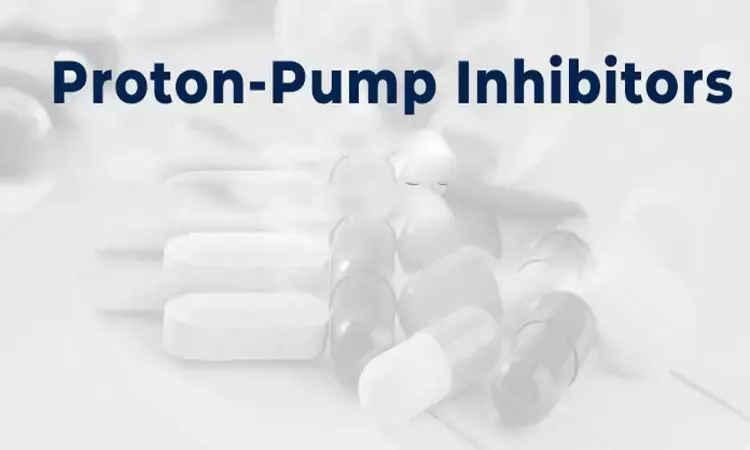- Home
- Medical news & Guidelines
- Anesthesiology
- Cardiology and CTVS
- Critical Care
- Dentistry
- Dermatology
- Diabetes and Endocrinology
- ENT
- Gastroenterology
- Medicine
- Nephrology
- Neurology
- Obstretics-Gynaecology
- Oncology
- Ophthalmology
- Orthopaedics
- Pediatrics-Neonatology
- Psychiatry
- Pulmonology
- Radiology
- Surgery
- Urology
- Laboratory Medicine
- Diet
- Nursing
- Paramedical
- Physiotherapy
- Health news
- Fact Check
- Bone Health Fact Check
- Brain Health Fact Check
- Cancer Related Fact Check
- Child Care Fact Check
- Dental and oral health fact check
- Diabetes and metabolic health fact check
- Diet and Nutrition Fact Check
- Eye and ENT Care Fact Check
- Fitness fact check
- Gut health fact check
- Heart health fact check
- Kidney health fact check
- Medical education fact check
- Men's health fact check
- Respiratory fact check
- Skin and hair care fact check
- Vaccine and Immunization fact check
- Women's health fact check
- AYUSH
- State News
- Andaman and Nicobar Islands
- Andhra Pradesh
- Arunachal Pradesh
- Assam
- Bihar
- Chandigarh
- Chattisgarh
- Dadra and Nagar Haveli
- Daman and Diu
- Delhi
- Goa
- Gujarat
- Haryana
- Himachal Pradesh
- Jammu & Kashmir
- Jharkhand
- Karnataka
- Kerala
- Ladakh
- Lakshadweep
- Madhya Pradesh
- Maharashtra
- Manipur
- Meghalaya
- Mizoram
- Nagaland
- Odisha
- Puducherry
- Punjab
- Rajasthan
- Sikkim
- Tamil Nadu
- Telangana
- Tripura
- Uttar Pradesh
- Uttrakhand
- West Bengal
- Medical Education
- Industry
Therapy with high dose of PPIs may benefit children with eosinophilic esophagitis

SPAIN: According to a study published in the Journal of Pediatric Gastroenterology and Nutrition, a significant fraction of children with clinical, endoscopic, and histological signs indicative of eosinophilic esophagitis (EoE) and normal esophageal pH test results responded to high-dose proton pump inhibitor (PPI) therapy.
The team led by Carolina Gutiérrez-Junquera stated that PPI "may be regarded as another treatment for pediatric EoE due to their simple administration and excellent safety profile."
A chronic, local, immune-mediated condition known as eosinophilic esophagitis (EoE) is characterized by symptoms of esophageal dysfunction and a heavy eosinophilic infiltration in the esophageal mucosa.
PPI medication virtually reverses the allergic and inflammatory transcriptome in children with EoE and lowers the expression of eotaxin-3 in the esophageal epithelium.
Proton pump inhibitor (PPI) therapy for juvenile eosinophilic esophagitis (EoE) was evaluated in this study for both short- and long-term effectiveness in real-world practice using a step-down technique, as well as for characteristics that predict PPI responsiveness.
Throughout this cross-sectional assessment of the prospective national RENESE registry, the authors gathered information regarding the effectiveness of PPIs. Included were children with EoE receiving PPI monotherapy. Peak eosinophilic count (eos) of less than 15 eosinophils (eos)/high-power field (hpf) was used to determine histological remission. Multivariate logistic regression analysis was used to determine the factors influencing PPI responsiveness.
Key findings of the study:
- Histological and clinico-histological remission were seen in 51.4% (n=346) and 46.5% of children following induction therapy, respectively.
- A higher likelihood of histological remission was linked with a normal endoscopic appearance of the esophagus (odds ratio [OR], 9.20; 95% confidence interval [CI], 2.10-40.16), whereas a lower likelihood of remission was related with a fibrostenotic phenotype (OR, 0.36; 95% CI, 0.18-0.74).
- At 7 months (n=108) and 16 months (n=34), respectively, long-term therapy with a step-down strategy successfully sustained histological remission in 68.5% and 85.3% of children.
- Complete initial histological remission with fewer than 5 eos/hpf was linked to a greater chance of persistent histological remission (OR, 5.08; 95% CI, 1.75-14.68).
- Adverse incidents were few and minor.
Induction therapy is less likely to be effective in children with fibrostenotic characteristics. Moreover, long-term histological remission is more likely to occur in patients who have initial histological remission that is complete, concluded the authors.
Although additional research is required to determine the optimum induction and maintenance treatment regimen, the long-term safety profile, and their impact on the development of fibrosis and esophageal remodeling, PPIs are an effective treatment for EoE in pediatric patients, they added.
REFERENCE
Gutiérrez-Junquera, Carolina1; Fernández-Fernández, Sonia2; Domínguez-Ortega, Gloria3; Vila Miravet, Víctor4; García-Puig, Roger5; La Orden-Izquierdo, Enrique6; Peña Quintana, Luis7; Barrio Torres, Josefa8; Medina Benítez, Enrique9; Leis, Rosaura10; García-Romero, Ruth11; Fernández de Valderrama, Ana12; Vecino López, Raquel13; Donado Palencia, Paloma14; On Behalf of the SEGHNP EoE Working Group.. Proton pump inhibitor therapy in pediatric eosinophilic esophagitis: predictive factors and long-term step-down efficacy. Journal of Pediatric Gastroenterology and Nutrition: November 23, 2022 - Volume - Issue - 10.1097/MPG.0000000000003660 doi: 10.1097/MPG.0000000000003660
Dr Kamal Kant Kohli-MBBS, DTCD- a chest specialist with more than 30 years of practice and a flair for writing clinical articles, Dr Kamal Kant Kohli joined Medical Dialogues as a Chief Editor of Medical News. Besides writing articles, as an editor, he proofreads and verifies all the medical content published on Medical Dialogues including those coming from journals, studies,medical conferences,guidelines etc. Email: drkohli@medicaldialogues.in. Contact no. 011-43720751


